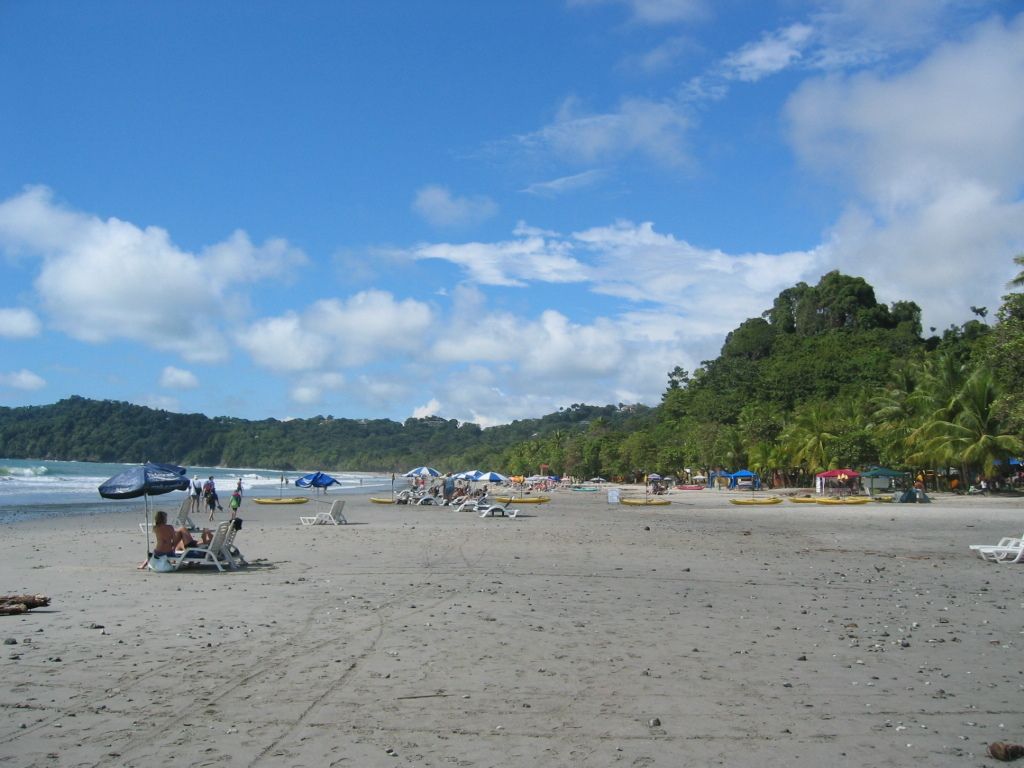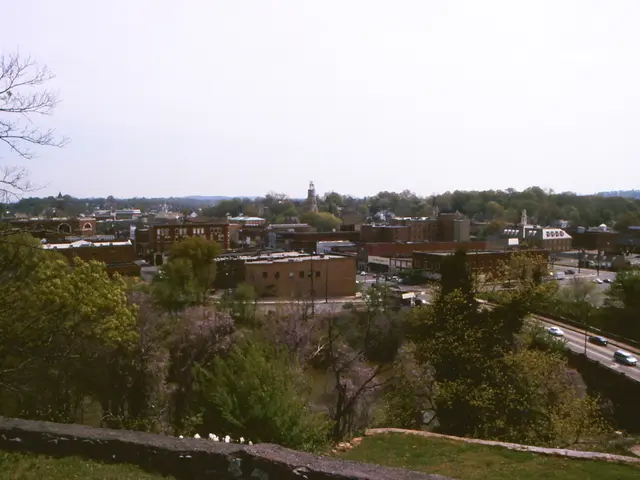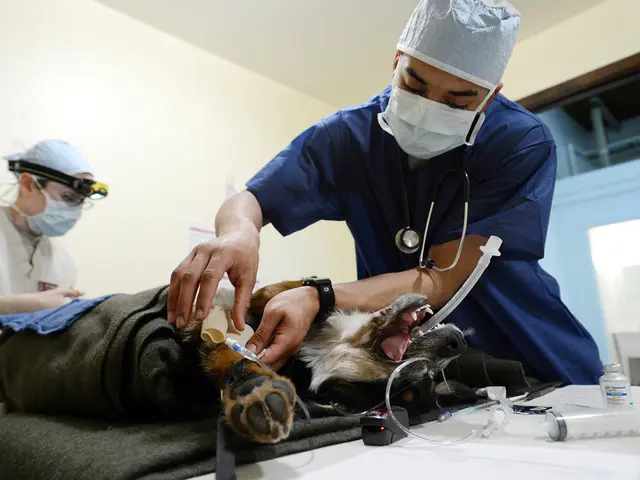Violence in Northern Ireland: Labour Leader Starmer Criticizes Two Nights of Senseless Actions
Firing Up the Flames: Tensions Boil Over in Ballymena
UK Prime Minister Keir Starmer joined forces with Northern Irish authorities on Wednesday, Condemning two chaotic nights of "mindless" violence predominantly targeting foreigners, specifically from the Romanian community.
The disturbing incidents that left 17 police officers injured have seen rioters armed with petrol bombs, fireworks, and bricks, launching attacks on homes and businesses. The ruckus began after the arrest of two teenagers accused of attempting to commit a heinous crime against a young girl.
In court on Monday, the suspects sought a Romanian interpreter, sparking outrage amongst the local community. The political heavyweights convened, expressing their strong opposition to the racially motivated violence that's been rocking the United Kingdom's Northern Irish province. Ministers across party lines issued a joint statement, urging the restoration of calm in society, decrying residents as terrorized and law enforcement officers injured. They cautioned against the divisive agenda being pushed by a destructive minority, advocating unity and rejection of extremist tendencies.
Starmer echoed these sentiments, joining in the condemnation of the "mindless assaults." Six individuals were arrested during the second night of riots in the town of Ballymena, located approximately 48 kilometers (30 miles) northwest of Belfast. Other towns weren't spared either, with unrest flaring up in Belfast, Carrickfergus, Newtownabbey, Larne, and Portadown.
Chief Constable Jon Boutcher condemned these acts, stating that hate-fueled acts and mob rule do nothing but tear at the very fabric of our society. The police refuse to disclose the ethnicity of the suspects in custody, but areas that saw attacks on the first day included those with a high presence of Romanian migrants.
Four houses went up in flames, and rioters damaged properties by smashing windows and doors of homes and businesses. The Police Service of Northern Ireland reported that officers came under relentless attack with multiple petrol bombs, heavy masonry, bricks, and fireworks.
Tensions in Ballymena, a town known for its diverse population, continued to simmer on Tuesday. Residents described the scenes as terrifying, with the assailants singling out "foreigners" as their targets. Assistant Chief Constable Ryan Henderson denounced the riots as "racist thuggery" and confirmed that they had been motivated by racial hatred and targeting the minority ethnic community and the police.
The incidents come at a time when immigration is becoming an increasingly intense political issue across the United Kingdom. The neighboring Republic of Ireland also grapples with the impacts of mounting immigration. Approximately 20% of Ireland's 5.4-million population is foreign-born, with a significant population increase due to migration of over 100,000 people in the year to April 2024, marking the largest surge since 2007.
According to the latest census in 2021, the number of residents identifying as Roma—a distinct ethnic group predominantly concentrated in Eastern and Central Europe—stands at around 1,500 or 0.1% of the population in Northern Ireland. These figures don't specify whether the Romanians are longstanding residents or recent immigrants. The census, however, reported that there were 6,612 Romanian-born people living in the province.
- The outbreak of violence in Ballymena, allegedly triggered by a court appearance of Romanian suspects, has sparked a discussion in the realm of politics, with leaders condemning the racially motivated attacks and urging unity against extremist tendencies.
- Amidst the escalating tensions, the business sector is concerned about the potential economic impact of such ethnic strife, as homes and businesses are torched and properties vandalized in several UK towns, including Ballymena.
- The wave of unrest over immigration, witnessed in Northern Ireland and reflected in the rising number of Romanian residents, is now making headlines in the general news, intertwining with crime-and-justice issues and casting a shadow over the anticipated integration process in society.








